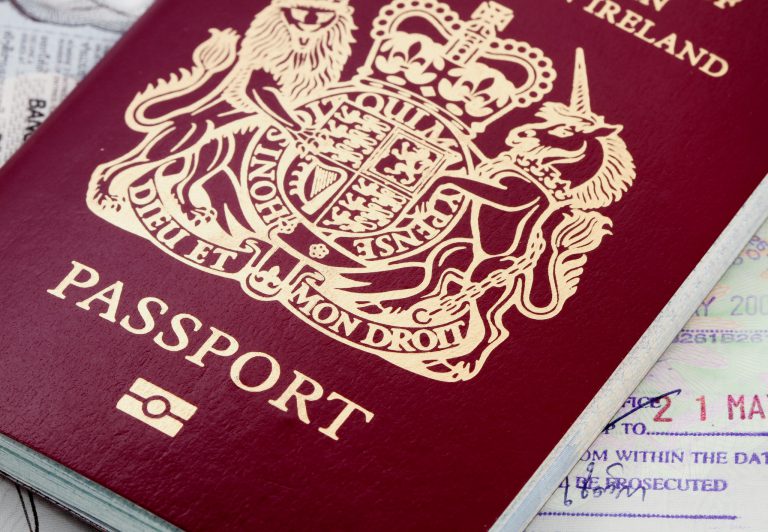
During the BBC’s Question Time on 4th December 2014, the following question was asked by an audience member:
“What is the future for the British identity after a recent survey showed in some areas of England the most popular typical British names have been replaced with those of Islamic origin?”
The question referred to a report which announced Muhammed has become the most commonly occurring boy’s name in Britain (a claim swiftly quashed ascompletely inaccurate). The questioner – an earnest young man named Patrick – insisted that he is losing sight of what it means to be British. He said that a growing proportion of residents with Islamic names is at odds with his conception of a Britain primarily associated with the Church of England. Ultimately, Patrick felt the British identity is being threatened.
Now, without intending to sound boastful, I consider myself a reasonably smart woman. I’m good at following the assembly instructions for flat-pack furniture. One time I did a Sudoku. I make a point of watching Question Time whenever I can, but I have to admit, this time I was absolutely stumped. I have no idea what Patrick’s question means. I cannot fathom what he was asking. I don’t know what “the British identity” is.
Consequently, humbled by my own ignorance, I’ve spent some time trying to work it out. Maybe, to be a part of the British identity, one simply needs to be of British nationality. Whether by birth or through later efforts, it’s possible to attain British citizenship. Perhaps British nationals constitute the British identity. Is this what Patrick’s referring to?
No, it can’t be, because a huge number of the people bearing Islamic names he refers to do have British passports. So it must not be to do with citizenship.
A passport is just a piece of documentation, though. The British identity surely thrives on something more palatable, more enduring. Maybe it’s all something to do with adhering to British custom? Is it a nationalist stance about indulging in British pastimes, eating British food, buying British products, speaking British languages? Does this, en masse – I mean, on mass – form the British identity? That would make sense, but for two hurdles:
1. Being called Muhammed does not hinder one from doing any of the above.
2. This rather pertinent statement. Whilst it doesn’t all have to be taken literally (I, for one, don’t particularly like Indian curries), the point still stands. Just how many Britons live their lives without dependency on international influence these days? Does Patrick? I doubt it.
So I still don’t understand. Patrick’s elaboration referred to the Church of England, however, so maybe his concept of the British identity relies on religion. Perhaps to be British, one must live on this lovely isle whilst holding Christian beliefs.
Try as I might, though, I cannot reconcile this with Patrick’s focus on names. I have the sneaking suspicion he might react in the same way as Pat Robertson in this scenario. But there is nothing contradictory about a person called Muhammed being a Christian, whether from birth or later conversion. Yet it’s the “[names] of Islamic origin”, according to the question, that provide the threat. Simply Islamic names; Patrick does not refer to Islamic practice. Certainly not explicitly, at any rate.
So it truly does come back down to the names. And Patrick believes Islamic names are contrary to the British identity. Yes, Britain is a geographical place, different to the ethical and conceptual religion of Islam, but we’ll tentatively assume Patrick believes Islam to be a kind of country in itself – it definitely has its own history and origins. So, presumably, the British identity is about British names. Monikers of Anglo-Saxon origin. Appellations steeped in the deep, rich history of the United Kingdom. This is how to maintain a British identity – by keeping foreign names to an absolute minimum. Right?
“Patrick” is derived from the Latin name Patricius, meaning the name is technically of Italian origin. Logically, the questioner himself is as much of a threat to the British identity as any Muhammed. As for how a name predominantly viewed as Irish would have been received in the UK a few decades ago… well.
Thankfully, Patrick was lambasted on the show. Panellists and audience members proudly bearing names from a variety of roots, including a Muhammed, rightly informed him that a person’s name has nothing whatsoever to do with their sentiments towards the UK.
There is, of course, a chance that I’m taking the entire question too literally. It possibly isn’t about names after all. Maybe Patrick is just a raving bigot. Sadly, he is not the only one with this reverence for “the British identity”. But until the day someone can define what that means, without inconsistency or hypocrisy, I’m withholding any shred of concern for their worries.
In the meantime, I would urge BBC Question Time to better screen their future questions. This discussion on the vague, elusive, downright nonsensical notion of the collective “British identity” was a completely inane waste of time. Try harder.
This article was originally published by Abstract Magazine.







